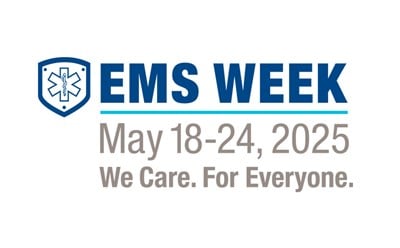WASHINGTON, D.C.—The Mississippi Chapter of the American College of Emergency Physicians (MS-ACEP) and its national organization today came out against a policy change that Blue Cross & Blue Shield of Mississippi (BCBS-MS) recently implemented that makes patients responsible for all the costs of an emergency visit if the insurer decides, after the fact, that the decision to seek care in an emergency department did not “align with the diagnosis severity.”
“This bad policy violates federal and state laws that require insurance coverage for emergency care to be based on the patient’s presenting symptoms and not on their final diagnosis,” said Philip Levin, MD, FACEP, president of MS-ACEP. “Emergency physicians treat patients every day with symptoms identical to those of life-threatening conditions, such as severe headache or abdominal pain. Some of these patients go home, some have serious issues and need medical procedures, and some need to be admitted to the hospital. Health insurance companies can’t expect patients to know which symptoms are life-threatening and which are not, and patients shouldn’t be punished financially because of it.”
Dr. Levin added that the policy is dangerous, because Mississippians who really need emergency care may now not seek it out of fear of getting a large bill.
For more than 20 years, the “prudent layperson” standard has been the guideline in state and federal law for determining whether an emergency visit is justified. The standard requires that insurance coverage be based on a patient’s symptoms, not their final diagnosis. Anyone who seeks emergency care suffering from symptoms that appear to be an emergency should not be denied coverage if the final diagnosis does not turn out to be immediately life-threatening. The BCBS-MS policy violates this standard.
Another insurance giant, Anthem Blue Cross Blue Shield, has implemented a similar policy in several states including Georgia, Indiana, Kentucky, Missouri, New Hampshire, and Ohio. ACEP, along with the Medical Association of Georgia, has filed a federal lawsuit against Anthem in that state to force them to reverse the policy.
According to an ACEP poll, more than four in 10 Americans report delaying or avoiding emergency care in the past two years out of concerns about the cost of co-pays, co-insurance, and deductibles. Nearly half said their medical condition worsened as a result.
“Some health plans have a long history of not paying for emergency care,” said Vidor Friedman, MD, FACEP, president of ACEP. “For years, they have denied claims based on final diagnosis instead of symptoms. Emergency physicians successfully fought back against these outrageous policies. Now, as the future of health care is debated again, insurance companies are trying to reintroduce the practice. We cannot let them.”
 American College of Emergency Physicians
American College of Emergency Physicians







